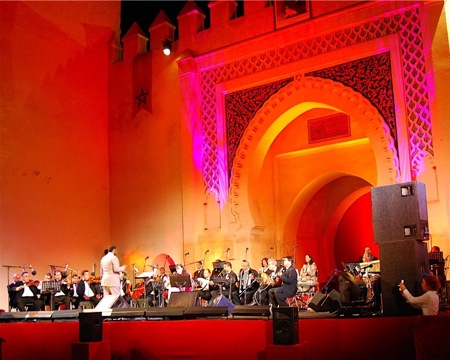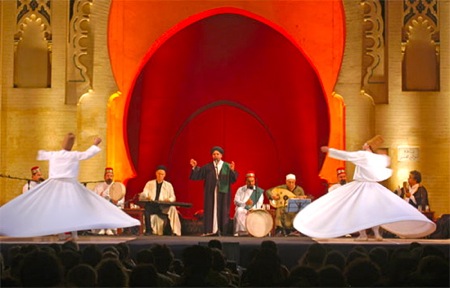Posts Tagged ‘Fes Historical Tour’
How does the Ramadan fast affect tourists traveling to the Imperial Cities, the Sahara Desert and other regions of Morocco during this high holy holiday? Can tourists eat or drink in public during Ramadan? This article should clear up the confusion on this issue for tourists, to explain the most polite solutions for tourist behavior at this time, and to assure tourists that there is no problem with them visiting Morocco during Ramadan. Because the Islamic calendar is lunar, holidays such as Ramadan advance by approximately ten days with each subsequent year. This means that Ramadan makes a cycle through the entire calendar of twelve months each twenty-some years. This year, Ramadan started on August 12th, 2010 in Morocco. The fast presently starts in Morocco at approximately 4:30 AM, and ends in the evening at approximately 7:30 PM.
The 16th Edition of the Fes Festival of World Sacred World Music will take place in Fes, Morocco from June 4th -12th, 2010. Travel Exploration Morocco offers a tour to the Fes Festival for 11 Days/ 10 Nights that includes the opportunity to visit the Best of Morocco while enjoying Music at the Fes Festival of World Sacred Music. The Fes Festival of World Sacred Music Morocco Tour Itinerary gives Moroccan Travelers the opportunity to discover Morocco’s Imperial Cities in a 4×4 on a Private Morocco Tour visiting Casablanca, Marrakech, Fes, Meknes and the Roman Ruins of Volubilis while basking their ears in International World Music alongside Traditional and Contemporary Moroccan music traditions.
The 16th Edition of the Fes Festival of World Sacred Music will take place in Fes, Morocco from June 4th -12th, 2010. The Fes Festival’s theme for 2010 is “Journey of Initiation: from mystery to revelation. The Fes Festival of World Sacred Music is 9-day celebration held in mid-summer (June 2010) that takes place in the imperial city of Fes. The festival was founded in 1994 by the Moroccan scholar and philanthropist Faouzi Skali and was created to showcase major musical traditions of sacred, spiritual music and world music. The current Artistic Director is Cherif Khaznadar, a pioneer of world music and one of the most influential Artistic Directors on the scene. Each year the festival celebrates artists from Muslim, Jewish, Christian, Hindu and other faiths to perform together in a spirit of mutual respect and collaboration.




